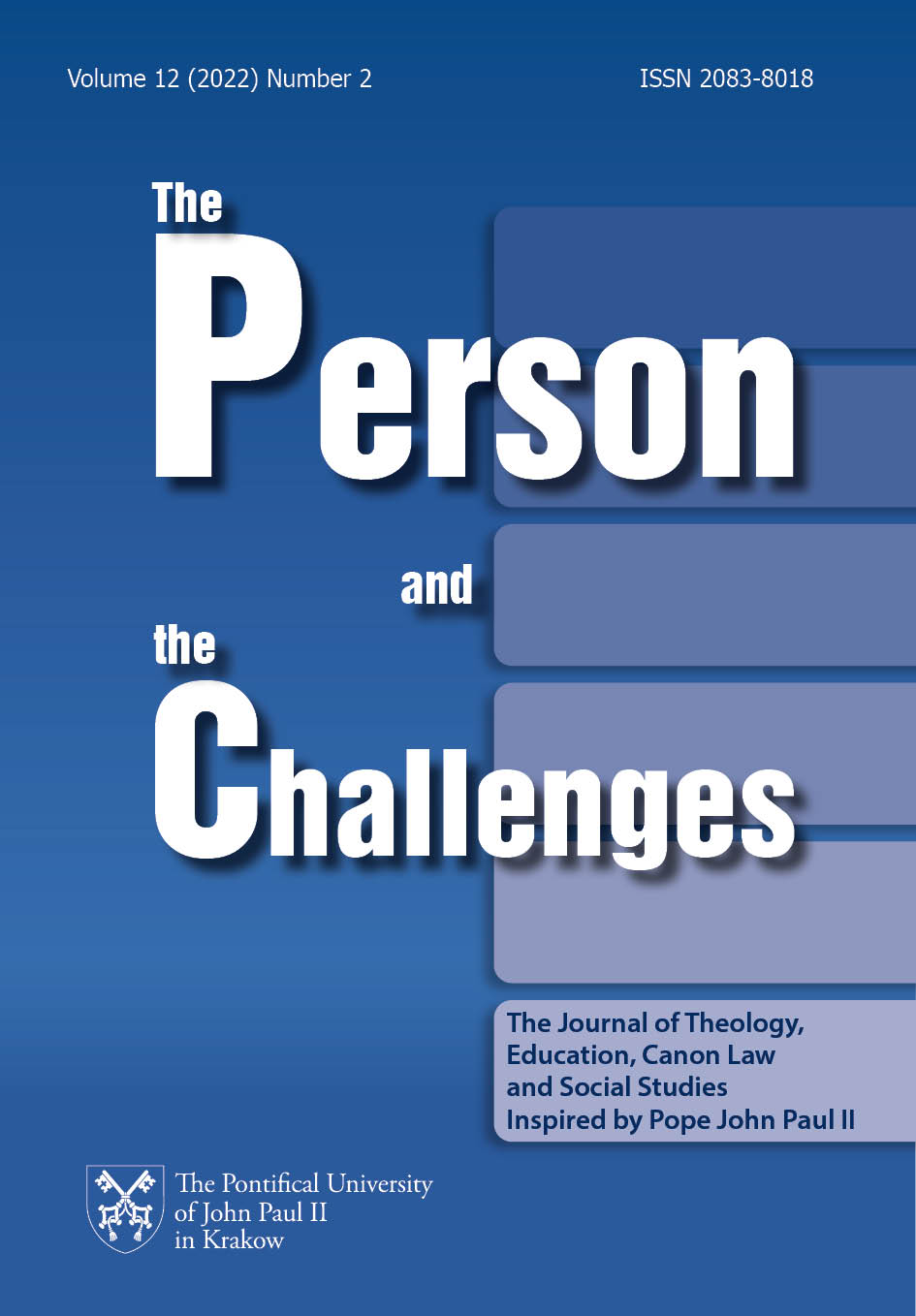Parents’ Opinion on some Myths about Parenting in the Context of their own Upbringing and Social Expectations
DOI:
https://doi.org/10.15633/pch.12210Keywords:
gender roles, myths about parenting, parenting, parents, social normsAbstract
The aim of this research was to investigate the opinions of parents at different stages of parenthood, about the myths of authoritarian parenting and gender stereotypes in parenting in the context of their own upbringing and social expectations. Considering the influence of one’s own parents, the way of growing up and the influence of wider society and social norms, the initial assumption of the research was that the way of growing up, as a family factor and social norms, as a social factor, define parents’ opinions on myths about authoritarian parenting and gender stereotypes in parenting. Twelve respondents participated in the research; a qualitative method of semi-structured interview was used. The results of the research showed that family factors, such as the way of growing up and the parenting style, but also social factors such as the social environment and media, influence parents’ opinions of myths about authoritarian parenting and gender stereotypes in parenting. Also, it was found that parents differ in their opinions on the myths about authoritarian parenting and gender stereotypes in parenting, depending on the stage of parenthood they are currently in.
References
Albritton T., Divney A., Gordon D., Kershaw T., Lewis J., Magriples U., Murphy A., Family and Relationship Influences on Parenting Behaviors of Young Parents, “Journal of Adolescent Health“ 54 (2014) 2, pp. 197–203.
Berc G., Blažeka Kokorić S., Laklija M., Doživljaj roditeljskog prihvaćanja/odbacivanja u kontekstu različitih socio-ekonomskih uvjeta odrastanja u primarnoj obitelj, “Hrvatska revija za rehabilitacijska istraživanja” 46 (2010) 2, pp. 1–18.
Chafel J.A., Hadley K.G., Poverty and the Well-Being of Children and Families, in: C.E. Walker, M.C. Roberts (eds.), Handbook of Clinical Child Psychology, New York 2001, Wiley, pp. 3–19.
Čudina-Obradović M., Obradović J., Potpora roditeljstvu: izazovi i mogućnosti, “Revija za socijalnu politiku” 10 (2003) 1, pp. 45–68.
Danyliuk T., Grusec J.E., Parents’ Attitudes and Beliefs: Their Impact on Children’s Development, 2014. Retrieved from: http://www.childencyclopedia.com/parenting-skills/according-experts/parents-attitudesand-beliefs-their-impact-childrens-evelopment (4.10.2021).
Družinec V., Transfer vrijednosti s roditelja na djecu, “Školski vjesnik: časopis za pedagogijsku teoriju i praksu” 65 (2016) 3, pp. 475–488.
Endendijk J., Groeneveldb M., van der Polb D.L., van Berkelb R.S., Hallers-Haalboomb E.T., Mesman J., Bakermans-Kranenburg M., Boys Don’t Play with Dolls: Mothers’ and Fathers’ Gender Talk during Picture Book Reading, “Parenting: Science and Practice” 14 (2014), pp. 141–161.
Erikson E., Childhood and Society, London 1984, Triad Paladin.
Goldscheider F., Hofferth S., Family Structure and the Transition to Early Parenthood, “Demography” 47 (2010) 2, pp. 415–437.
Keresteš G., Sočo M., Roditeljsko ponašanje zaposlenih roditelja: povezanost s objektivnim obilježjima posla i subjektivnim doživljajem odnosa roditeljske i radne uloge, “Društvena istraživanja: časopis za opća društvena pitanja” 20 (2011) 3, pp. 647–669.
Koruga T., Istospolno roditeljstvo, Rijeka 2015, Sveučilište u Rijeci. Kušević B., Socijalna konstrukcija roditeljstva – implikacije za obiteljsku pedagogiju, “Pedagogijska istraživanja” 8 (2011) 2, pp. 297–307.
Lacković-Grgin K., Doživljaj i praksa roditeljstva u različitim životnim razdobljima, “Društvena istraživanja: časopis za opća društvena pitanja” 20 (2011) 4, pp. 1063–1083.
Leus T., Najčešće roditeljske zablude: 49 zamki u odgoju i kako ih izbjeći, Zagreb 2014, Planet Zoe.
Ljubešić M., Izazovi odrastanja i roditeljstvo. “Nova prisutnost: časopis za intelektualna i duhovna pitanja” 2 (2004) 2, pp. 325–328.
Ljubetić M., Reić Ercegovac I., Svjesnost u roditeljstvu majki i očeva djece različite dobi: Validacija hrvatske inačice upitnika, “Psihologijske teme” 28 (2019) 2, pp. 397–418.
Nenadić-Bilan D., Društvena potpora roditeljima djece predškolske dobi, “Školski vjesnik: časopis za pedagogijsku teoriju i praksu” 64 (2015) 1, pp. 45–63.
Pećnik N., Radočaj T., Tokić A., Uvjerenja javnosti o ispravnim roditeljskim postupcima prema djeci najmlađe dobi, “Društvena istraživanja: časopis za opća društvena pitanja” 20 (2011) 3, pp. 625–646.
Pernar M., Roditeljstvo, “Medicina Fluminensis: Medicina Fluminensis” 46 (2010) 3, pp. 255–260.
Pintar Ž., Roditeljstvo u otporu, “Školski vjesnik: časopis za pedagogijsku teoriju i praksu” 67 (2018) 2, pp. 287–298.
Pollit, K., Why Boys Don’t Play With Dolls, 1995. Retrieved from: http://www.nytimes.com/1995/10/08/magazine/hers-why-boys-don-t-play-with-dolls.html (4.10.2021).
Rabin A.I., Motivation for Parenthood, “Journal of Projective Techniques and Personality Assessment” 29 (1965) 4, pp. 405–413.
Runco M., Creativity – Theories and Themes: Research, Development, and Practice, London 2014, Academic Press.
Rusac S., Štambuk A., Tomečak M., Promišljanje starenja i starosti – predrasude, mitovi i novi pogledi, “Hrvatska revija za rehabilitacijska istraživanja” 50 (2014) 1, pp. 36–53.
Sunko E., Utjecaj provedbe programa za roditelje na njihove stavove o odgoju, “Odgojne znanosti” 10 (2008) 2, pp. 383–401.
Vučković Juroš T., Zašto ovdje možemo, a tamo ne možemo biti obitelj? – Kako socioinstitucionalni okviri oblikuju iskustva LGB roditeljstva, “Revija za sociologiju” 49 (2019) 2, pp. 205–229.
Downloads
Published
Issue
Section
License
Copyright (c) 2022 Rozana Petani, Helena Jurina

This work is licensed under a Creative Commons Attribution 4.0 International License.
Authors who publish with this journal agree to the following terms:
- Authors retain the copyright and full publishing rights without restrictions, and grant the journal right of first publication with the work simultaneously licensed under a Creative Commons Attribution 4.0 International License that allows others to share the work with an acknowledgement of the work's authorship and initial publication in this journal.
- Authors are able to enter into separate, additional contractual arrangements for the non-exclusive distribution of the journal's published version of the work (e.g., post it to an institutional repository or publish it in a book), with an acknowledgement of its initial publication in this journal.
- Authors are permitted and encouraged to post their work online (e.g., in institutional repositories or on their website) prior to and during the submission process, as it can lead to productive exchanges, as well as earlier and greater citation of published work (See The Effect of Open Access).

